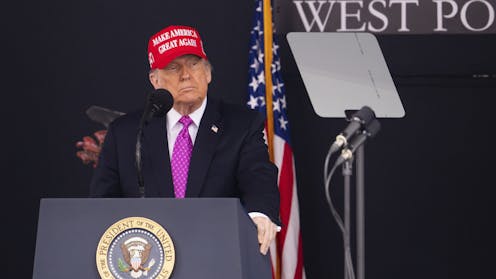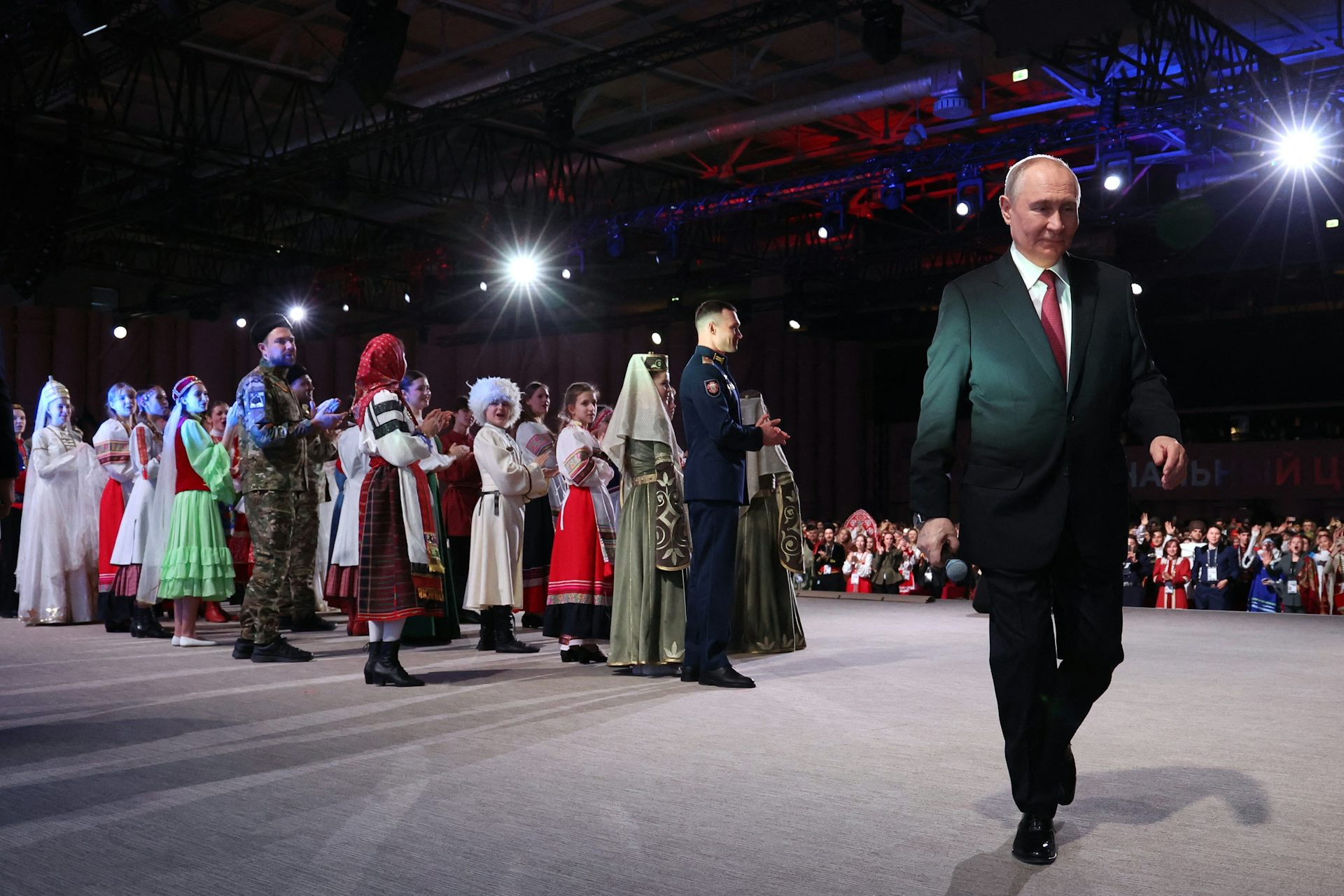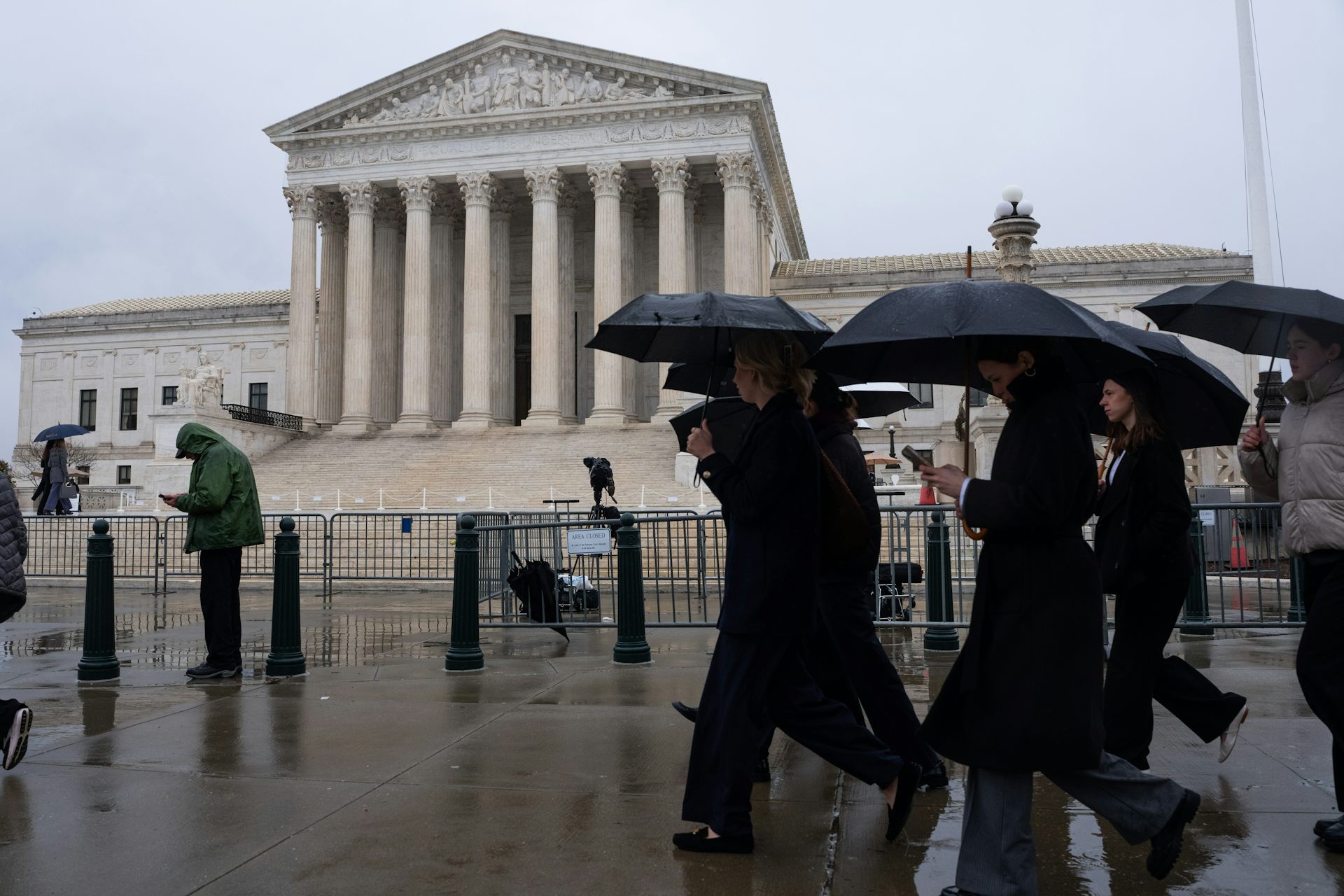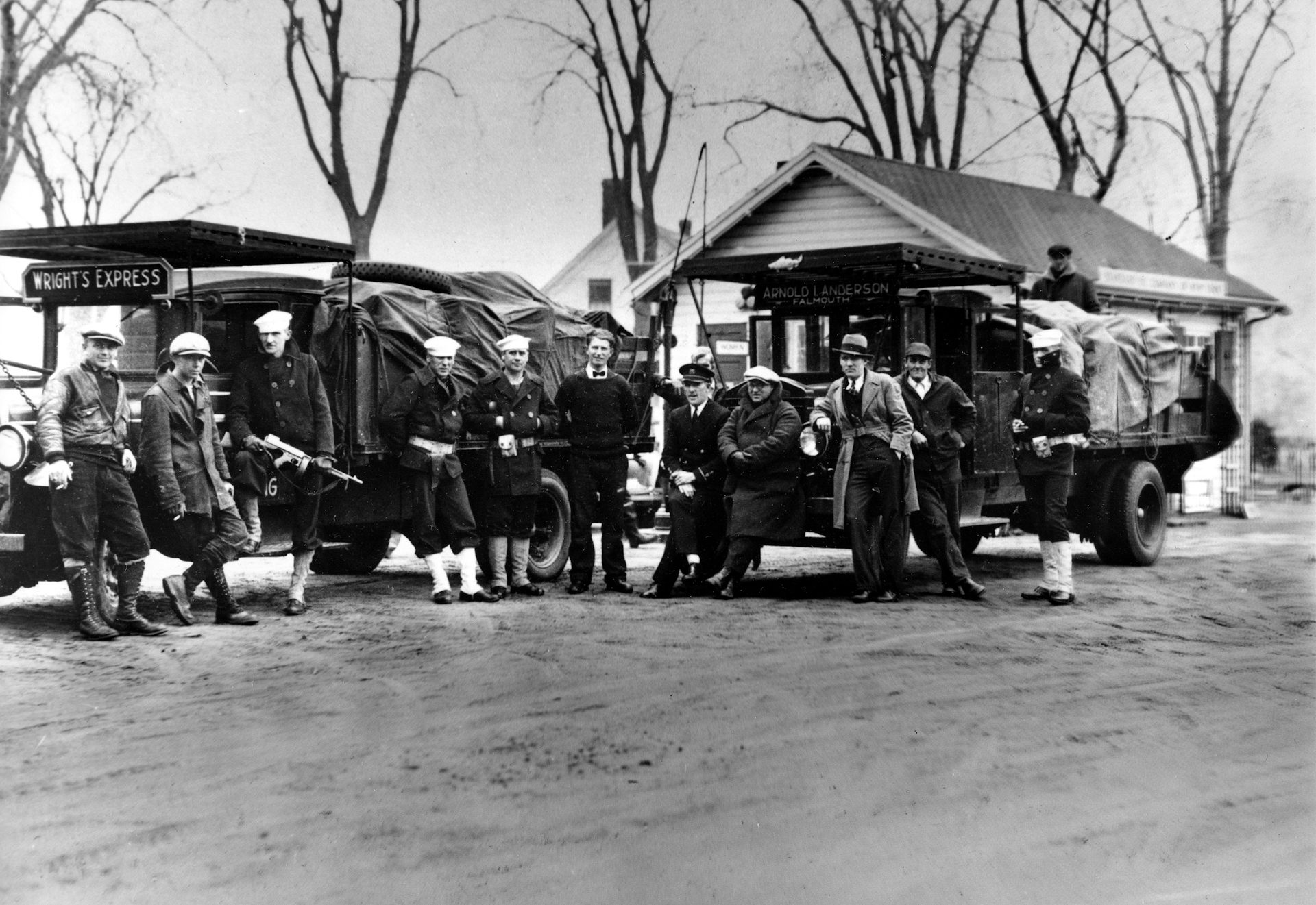Trump’s West Point speech brought partisanship to the home of the US military − 3 essential reads
A campaign hat and a partisan speech are unusual in a military setting in the United States.

President Donald Trump’s speech at the graduation of the class of 2025 from the U.S. Military Academy at West Point included segments that were clearly scripted and portions that were obviously not.
During the unscripted portions, Trump, who wore a bright red “Make America Great Again” campaign hat during his entire appearance on May 24, 2025, delivered remarks that hit many of his frequent partisan political talking points. That included attacking presidential predecessors Barack Obama and Joe Biden, describing immigrants to the U.S. as “criminals” and trumpeting other policy accomplishments in his first and second terms.
That level of partisanship in a military setting – on the campus of the nation’s first military academy, and before an audience of cadets and their families, many of whom are veterans – is unusual in the United States.
The Conversation U.S. has published several articles discussing the importance to democracy of keeping the military and partisan politics separate. Here are three highlights from that coverage.
1. Cadets focus on the Constitution
During the West Point ceremony, the graduates themselves took an oath to “support and defend the Constitution of the United States against all enemies, foreign and domestic.” And all of them had studied the significance of that oath, including in classes like those taught by Joseph G. Amoroso and Lee Robinson, active-duty Army officers who graduated from West Point and later served as professors there.
As Amoroso and Robinson wrote, those classes teach cadets that, like all military personnel, they serve the Constitution and the American people, not a particular person or political party:
“(O)ur oath forms the basis of a nonpartisan ethic. In the U.S., unlike in many other countries, the oath implies military leaders should be trusted for their expertise and judgment, not for their loyalty to an individual or political party. We emphasize to cadets the rules and professional expectations associated with this profound responsibility.”
2. A tradition of nonpartisanship
Retired U.S. Air Force Maj. Gen. Samuel C. Mahaney, who teaches history, national security and constitutional law at Missouri University of Science and Technology, observed:
“(S)ince the days of George Washington, the military has been dedicated to serving the nation, not a specific person or political agenda. … (N)onpartisanship is central to the military’s primary mission of defending the country.”
Mahaney wrote that if Trump’s actions during his second term meant a change from the centuries of precedent, “military personnel at all levels would face a crucial question: Would they stand up for the military’s independent role in maintaining the integrity and stability of American democracy or follow the president’s orders – even if those orders crossed a line that made them illegal or unconstitutional?”
Read more: Trump's firings of military leaders pose a crucial question to service members of all ranks
3. Dating back to the founding of the nation
Marcus Hedahl and Bradley Jay Strawser, professors of philosophy who teach military ethics at the U.S. Naval Academy and the Naval Postgraduate School, respectively, explain the reason for this long-standing focus on keeping politicians and politics separate from military action.
“To minimize the chance of the kind of military occupation they suffered during the Revolutionary War, the country’s founders wrote the Constitution requiring that the president, an elected civilian, would be the commander in chief of the military. In the wake of World War II, Congress went even further, restructuring the military and requiring that the secretary of defense be a civilian as well.”
As they observed, “… the framers always intended it to be the people’s military – not the president’s.”
This story is a roundup of articles from The Conversation’s archives.
Read These Next
As war in Ukraine enters a 5th year, will the ‘Putin consensus’ among Russians hold?
Polling in Russia suggests strong support for President Vladimir Putin. Yet below the surface, popular…
Supreme Court rules against Trump’s emergency tariffs – but leaves key questions unanswered
The ruling strikes down most of the Trump administration’s current tariffs, with more limited options…
After a 32-hour shift in Pittsburgh, I realized EMTs should be napping on the job
A paramedic and university professor shares data about how strategic napping could help his own health…






